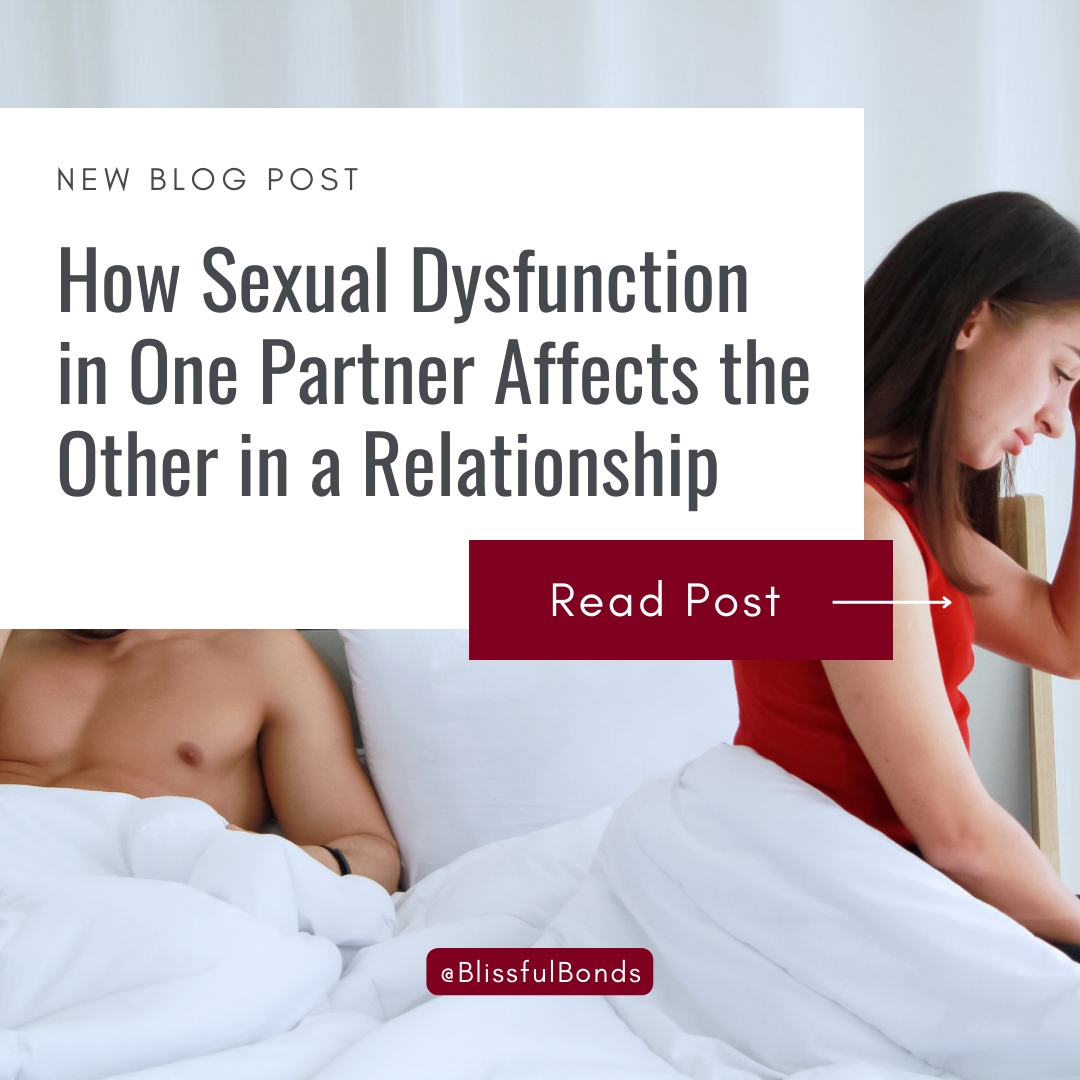The Ripple Effect of Sexual Difficulties: How Sexual Dysfunction in One Partner Affects the Other in a Relationship
Sexual dysfunction is a widespread issue that can affect individuals and their relationships. When one partner experiences sexual dysfunction, it doesn't only impact them but also has a profound effect on their partner and the relationship as a whole. This article explores the intricate ways in which sexual dysfunction in one partner can affect the other and sheds light on how open communication and mutual support can help navigate this challenging situation.
Emotional and Psychological Impact: Sexual dysfunction in one partner often triggers emotional and psychological effects on both individuals within the relationship. The partner experiencing the dysfunction may undergo feelings of inadequacy, shame, guilt, and frustration. Conversely, the other partner may experience confusion, worry, and anxiety concerning their partner's well-being and the future of their relationship.
Communication Challenges: Effective communication is vital for a healthy relationship, but sexual dysfunction can pose significant challenges in this aspect. The partner facing sexual difficulties might struggle to articulate their feelings and concerns, leading to a lack of transparency in the relationship. The other partner may also find it challenging to initiate conversations about the issue, fearing that it may exacerbate their partner's distress.
Changes in Intimacy and Connection: Sexual dysfunction often leads to a decline in intimacy and connection within the relationship. Physical closeness may decrease, and this can impact emotional bonding as well. The partner experiencing sexual dysfunction might withdraw from physical interactions due to embarrassment or fear of disappointing their partner. The other partner may feel rejected, neglected, or undesired, further straining the relationship.
Relationship Satisfaction and Fulfillment: Sexual satisfaction is a crucial component of a fulfilling relationship. When one partner grapples with sexual dysfunction, both individuals may experience diminished satisfaction in the relationship. The partner with the dysfunction may feel unable to fulfill their partner's needs, while the other may struggle to find fulfillment in the relationship due to the absence of a satisfying sexual connection.
Resentment and Frustration: Over time, unaddressed sexual dysfunction can breed resentment and frustration within the relationship. The partner without the dysfunction may start feeling neglected, unsupported, or unimportant in their partner's life. Simultaneously, the partner facing sexual challenges may resent themselves for causing pain and frustration to their loved one, intensifying their own emotional burden.
Seeking Solutions and Support: Dealing with sexual dysfunction as a couple requires proactive efforts from both partners. Open and honest communication is vital to understanding each other's feelings, concerns, and needs. Seeking professional help, such as couples therapy or sex therapy, counseling, or coaching can provide a safe space for addressing the issue and finding potential solutions.
Building Empathy and Patience: Both partners must work on cultivating empathy and patience. The partner facing sexual dysfunction needs understanding, encouragement, and reassurance from their loved one. Conversely, the partner without the dysfunction needs patience, empathy, and a willingness to support their partner through the challenges.
Sexual dysfunction is a complex issue that significantly impacts both partners in a relationship. Addressing the emotional, psychological, and relational consequences of sexual dysfunction requires understanding, communication, and a united effort from both individuals. Approaching the issue with compassion, seeking professional assistance, and fostering open dialogue, helps couples navigate the challenges together and strengthen their bond.
If you’d like support navigating these challenges, whether by yourself or as a couple, click here to request a session.
I am a PhD in Clinical Sexology candidate at Modern Sex Therapy Institutes and have a Master of Science in Educational Psychology. I work with individuals, couples, non-monogamous relationships, and groups in topics related to sexuality, emotional regulation, communication dynamics, and changing behaviors.


